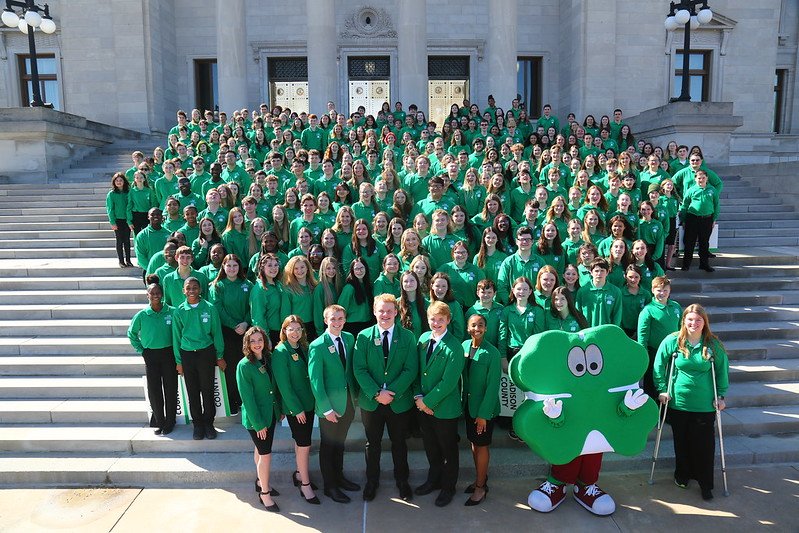By Mary Hightower
U of Arkansas System Division of Agriculture
FERNDALE, Ark. — Arkansas 4-H, the state’s largest youth program, could use your help on March 17, a day when people are thinking about all things green.
“Green is our color,” said John Thomas, managing director of the Arkansas 4-H Foundation. “Having March 17 as our fourth annual ‘giving of the green day’ seemed to be a great reminder that we need your support.
“Each year, Arkansas 4-H distributes more than $150,000 in college and activity scholarships,” he said. “You can be sure your donation goes to a good cause. Please support us.”
Thomas said donations can be made online, or donors may text AR4H to 44321. He notes that when texting, donors will be asked to give a $44 default gift or donate a custom amount.
Arkansas 4-H members can attest to the personal growth opportunities the organization offers. There are some 130,000 youth involved with 4-H in Arkansas.
Arkansas 4-H awwards some $150K in scholarships each year.
“My experiences taught me a lot about seeing the whole picture and really understanding other perspectives,” said Jack Berryhill, a past Arkansas 4-H president. 4-H “gave me great insight into how others think and feel and how things affect them. That gave me understanding and compassion for wanting to work with others”
Diamond Jones, the current Arkansas 4-H president, said, “If you want a group of people who believe in you, who back you up, and who offer to teach you, I say join Arkansas 4-H. It’s definitely left a huge impact on the way I socialize with others, and I’ve learned so many skills that I wouldn’t have before."
Learn more about the Arkansas 4-H Foundation at arkansas4hfoundation.org.
To learn about extension programs in Arkansas, contact your local Cooperative Extension Service agent or visit www.uaex.uada.edu. Follow us on X and Instagram at @AR_Extension. To learn more about Division of Agriculture research, visit the Arkansas Agricultural Experiment Station website: https://aaes.uada.edu. Follow on X at @ArkAgResearch. To learn more about the Division of Agriculture, visit https://uada.edu/. Follow us on X at @AgInArk.











